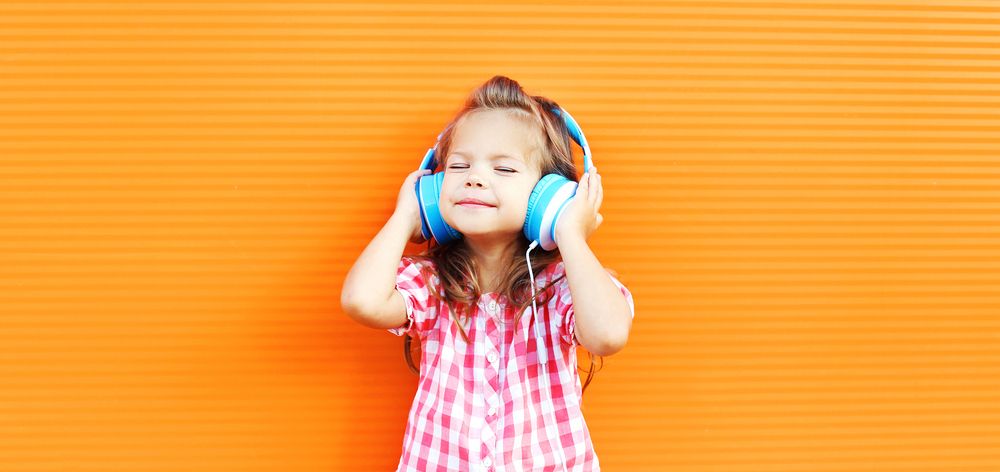Can music improve emotion regulation?
Published on Tuesday, 15 October 2019
Last updated on Tuesday, 31 December 2019

Teaching young children how to manage and regulate big emotions is a challenging job, and one that early childhood educators face on a daily basis.
But researchers from the University of Kansas have shown that it is a skill that can be learned and that music may play a key role.
Associate Professor of music from the University of Kansas Deanna Hanson-Abromeit, is experimenting with music-based interventions which aim to train preschoolers to regulate their emotions.
The hope is that learning emotion regulation during childhood will help the children resist the urge to act out in violent, counterproductive ways when they become teens and adults.
How does it work?
Associate Professor Hanson-Abromeit said music has a transformative power that therapists want to better understand and tap into.
"You hear a song from childhood, and it brings you right back to that original memory with the smells and the emotions and everything, right? So there's this real power in music," she said.
Associate Professor Hanson-Abromeit has named this power, or concept, musical contour regulation facilitation, or MCRF and she says her theory stemmed from her questioning the whole notion of music as therapy.
But in Hanson-Abromeit's clinical work with premature infants, she said, "I really didn't understand what was creating change. I did recognise that subtle adjustments in tempo, melodic contour and dynamics created very subtle but important changes in these premature infants - physiological and behavioural responses. And that really started me asking major questions."
Associate Professor Hanson-Abromeit said music therapy emerged after World War II when physicians began noticing that making music with veterans suffering from what we now call post-traumatic stress seemed to make them calmer and happier.
But she said we still don't understand what causes the improvement.
"Neuroscience has given us so many more avenues for understanding music… And yet we still have that question of how and why is music functioning for therapeutic change?"
She said that understanding this would make it easier to create targeted and effective music interventions and that is what Associate Professor Hanson-Abromeit and her colleague Kimberly Sena Moore, assistant professor of professional practice at the University of Miami's Frost School of Music, are now exploring.
Their previous study in the Journal of Music Therapy demonstrated that the emotion regulation skills of typical preschoolers benefited from MCRF training.
"Emotion regulation tends to develop from a perspective of external cues. When a baby cries and a caregiver comes over, figures out what the baby needs and meets those needs, she is providing regulation for their aroused state by meeting their needs.
As we age, a shift happens for fewer external cues as we start to learn how to do that internally. For example, we provide pacifiers to babies, and they learn that by sucking, they can calm themselves. They also notice what it feels like when they're aroused…and nobody responds to them.
"As we age, we start to gather strategies from around us, and we either develop healthy emotion regulation or we don't."
Associate Professor Hanson-Abromeit said this is an important developmental phase as health issues such as aggression and anxiety can arise from poor emotional regulation skills.
"Children develop emotion regulation by practice, but there are very few interventions that allow children to practice what it feels like to be aroused versus what it feels like to be low aroused, or just kind of neutral."
This is the next phase of the research; in a 2015 Frontiers of Neuroscience article, Hanson-Abromeit and Sena Moore described what characteristics of music stimulated what types of physiological changes during various states of arousal.
Associate Professor Hanson-Abromeit said knowing the way certain sounds and music effect children could help musicians compose music intentionally designed to elicit a specific emotional response in children.
To this end, in the next stage of the study, the 15-minute experimental periods will expose children to music that shifts up and down, back and forth, between high- and low-arousal sounds.
"The primary outcomes of this study that we're looking at is our dosage. We want to know is this intervention effective if done three times a week, or just one time a week?"
Related Articles

Books are still better for children than devices
Even in the age of digital technology books will always be better for children.

Fostering a sense of wonder
How to foster a sense of wonder and awe in children and how it benefits them.

Have screens killed imaginary friends?
A new survey of early childhood staff in the UK has shown that fewer children have imaginary friends than they did five years ago, with screen time being cited as the major factor in making children less imaginative.
